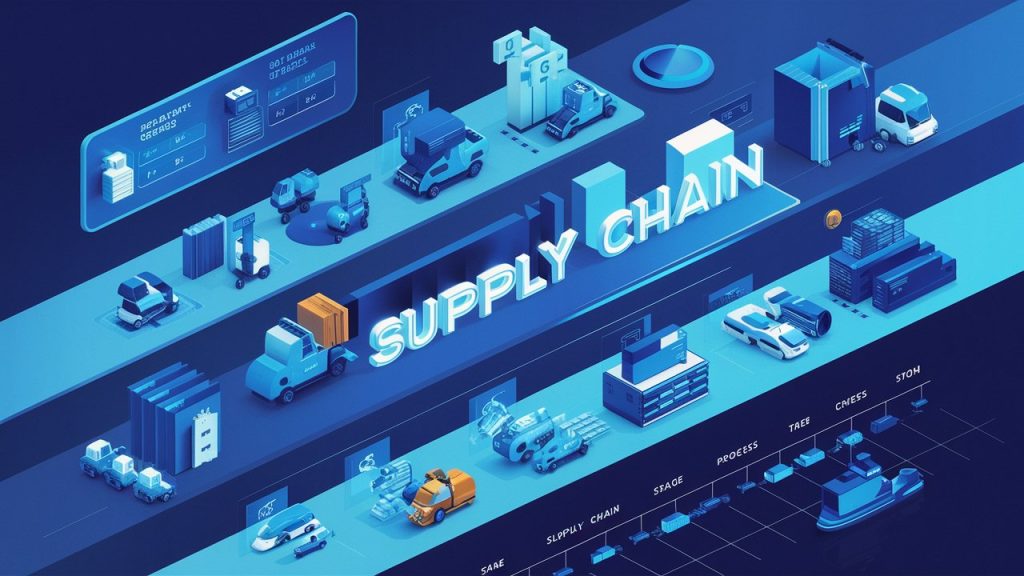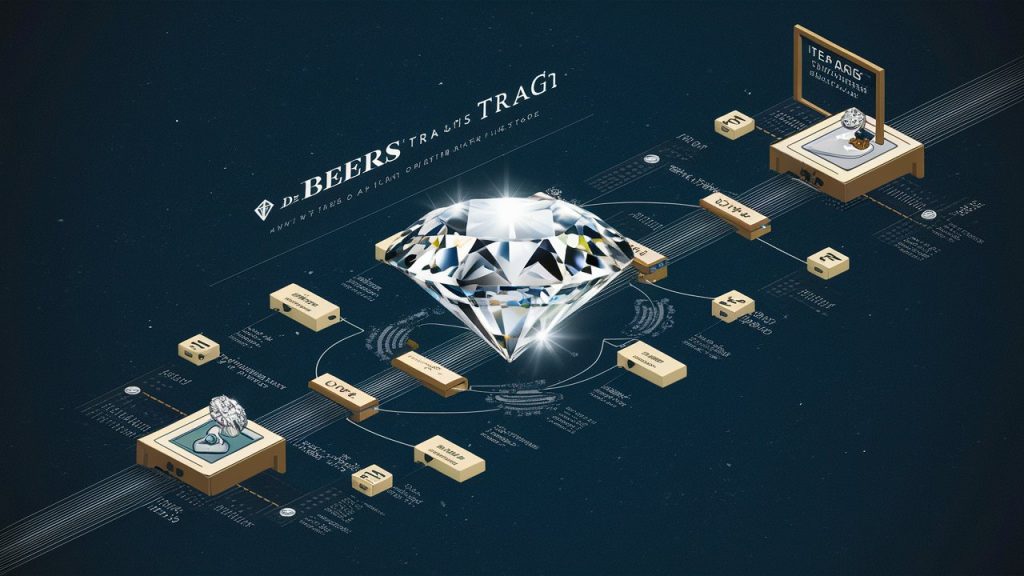Blockchain technology has emerged as a groundbreaking innovation, transforming industries by enhancing transparency, security, and efficiency. Among its most impactful applications is supply chain management, where blockchain revolutionizes the way goods are tracked, verified, and delivered. By providing a decentralized ledger that ensures trust and accountability, blockchain enables stakeholders to address challenges such as fraud, inefficiencies, and lack of visibility. This article explores how blockchain revolutionizing supply chain processes and examines its future potential.
Understanding Blockchain Technology

At its core, blockchain is a distributed ledger system that records transactions across multiple nodes, ensuring data is immutable, transparent, and secure. Unlike traditional databases, blockchain eliminates the need for a central authority, relying instead on cryptographic algorithms to verify and validate transactions. This decentralized approach fosters trust among participants, as all data is accessible and tamper-proof.
In the context of supply chain management, blockchain provides a shared platform where all stakeholders, including manufacturers, suppliers, distributors, and consumers, can view the movement of goods in real time. By ensuring that every transaction is recorded and verified, blockchain mitigates risks associated with fraud, delays, and inaccuracies. This foundational understanding underscores why blockchain is revolutionizing supply chain operations across industries.
Blockchain Technology And How The Blockchain is Revolutionizing Chain Management

Blockchain’s impact on supply chain management lies in its ability to address key inefficiencies and enhance collaboration among stakeholders. One of its primary benefits is improving traceability. With blockchain, every step of a product’s journey—from raw material sourcing to final delivery—is recorded, enabling stakeholders to track its origin, authenticity, and condition. This level of transparency is invaluable for industries such as food, pharmaceuticals, and luxury goods, where counterfeiting and quality control are significant concerns.
Additionally, blockchain streamlines documentation processes by digitizing records and automating verification. Smart contracts, powered by blockchain, ensure that agreements between parties are executed automatically when predefined conditions are met. This eliminates the need for intermediaries, reducing costs and delays. The technology’s immutable nature also ensures compliance with regulatory standards, making audits and reporting more efficient. Dive deeper into our [blog posts] for in-depth insights and examples.
How The Blockchain is Revolutionizing Supply Chain Mangement:

The practical applications of blockchain in supply chain management are vast and transformative. One notable example is the use of blockchain for ethical sourcing. Companies can ensure that their suppliers adhere to labor laws and environmental standards by recording every stage of production on the blockchain. This not only enhances corporate responsibility but also builds trust with consumers.
Another significant application is in combating counterfeit goods. By assigning unique digital identifiers to products, blockchain enables consumers and retailers to verify their authenticity. For instance, a luxury handbag can have a blockchain-enabled tag that proves it is genuine and traceable to its manufacturer. Furthermore, blockchain facilitates real-time tracking of shipments, allowing businesses to identify bottlenecks and optimize logistics.
Trends for the use of Blockchain in Supply Chain Management in Future

The future of blockchain in supply chain management is poised for remarkable growth, driven by advancements in technology and increased adoption. One emerging trend is the integration of blockchain with Internet of Things (IoT) devices. IoT sensors embedded in products or containers can capture real-time data, such as temperature, humidity, and location, and record it on the blockchain. This ensures that perishable goods, like food or vaccines, maintain their integrity throughout the supply chain.
Another trend is the use of blockchain in circular economies. By tracking the lifecycle of products, blockchain can facilitate recycling and waste management, promoting sustainability. As governments and consumers place greater emphasis on eco-friendly practices, blockchain will play a crucial role in enabling transparency and accountability in these initiatives.
Collaborative platforms powered by blockchain are also gaining traction. These platforms enable stakeholders across different regions and industries to share data securely and efficiently, fostering global supply chain integration. As blockchain continues to evolve, its potential to transform supply chain management will only expand, offering unprecedented opportunities for innovation and growth.
Conclusion
Blockchain technology represents a paradigm shift in supply chain management, offering solutions to long-standing challenges such as inefficiency, fraud, and lack of transparency. By enabling traceability, automating processes, and fostering collaboration, blockchain has redefined how goods are produced, transported, and delivered.
As businesses increasingly recognize the value of blockchain, its adoption across supply chains will become more widespread. Emerging trends, such as IoT integration and circular economies, highlight the technology’s potential to drive sustainability and innovation. While challenges like scalability and regulatory compliance persist, the benefits of blockchain far outweigh these obstacles, making it an indispensable tool for the future.
The journey toward fully harnessing blockchain’s potential is still underway, but its impact on supply chain management is undeniable. By embracing this technology, industries can build more efficient, transparent, and resilient supply chains, ensuring success in an increasingly complex and competitive world.

